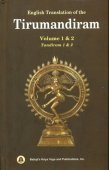Ashastra, Aśāstra, Aśastra: 10 definitions
Introduction:
Ashastra means something in Hinduism, Sanskrit, Marathi. If you want to know the exact meaning, history, etymology or English translation of this term then check out the descriptions on this page. Add your comment or reference to a book if you want to contribute to this summary article.
The Sanskrit terms Aśāstra and Aśastra can be transliterated into English as Asastra or Ashastra, using the IAST transliteration scheme (?).
Languages of India and abroad
Marathi-English dictionary
Source: DDSA: The Molesworth Marathi and English Dictionaryaśāstra (अशास्त्र).—a (S) That is done in violation or disregard of the rules and rites prescribed by the Shastras; informal, irregular, uncanonical, unscriptural.
Source: DDSA: The Aryabhusan school dictionary, Marathi-Englishaśāstra (अशास्त्र).—a Uncanonical, unscriptural. Informal; irregular.
Marathi is an Indo-European language having over 70 million native speakers people in (predominantly) Maharashtra India. Marathi, like many other Indo-Aryan languages, evolved from early forms of Prakrit, which itself is a subset of Sanskrit, one of the most ancient languages of the world.
Sanskrit dictionary
Source: DDSA: The practical Sanskrit-English dictionaryAśastra (अशस्त्र).—a. Having no weapons, unarmed.
-stram Not a weapon; °विहितो वधः (vihito vadhaḥ) H.2.85; °पूतं मरणमुपदिशामि (pūtaṃ maraṇamupadiśāmi) Ve. 2 (ātmaghātitvena śastreṇa na pūtam); अशस्त्रपूतम् (aśastrapūtam) Mālatīmādhava (Bombay) 5.12.
--- OR ---
Aśāstra (अशास्त्र).—a. Not conformable to sacred authority, not scriptural, heterodox.
Source: Cologne Digital Sanskrit Dictionaries: Shabda-Sagara Sanskrit-English DictionaryAśāstra (अशास्त्र).—mfn.
(-straḥ-strā-straṃ) Not conformable to sacred authority, heterodox, unscriptural. E. a neg. śāstra cripture.
Source: Cologne Digital Sanskrit Dictionaries: Cappeller Sanskrit-English DictionaryAśastra (अशस्त्र).—[adjective] unarmed.
Source: Cologne Digital Sanskrit Dictionaries: Monier-Williams Sanskrit-English Dictionary1) Aśastra (अशस्त्र):—[=a-śastra] [from a-śas] 1. a-śastra mf(ā)n. having no invocation, [Mārkaṇḍeya-purāṇa]
2) [v.s. ...] 2. a-śastra mfn. (√1. śas), weaponless, unarmed, [Mahābhārata etc.]
3) Aśāstra (अशास्त्र):—[=a-śāstra] [from a-śāsat] mf(ā)n. not prescribed in the Śāstras, unscriptural, [Jaimini]
Source: Cologne Digital Sanskrit Dictionaries: Yates Sanskrit-English Dictionary1) Aśastra (अशस्त्र):—[a-śastra] (straḥ-strā-straṃ) a. Defenceless.
2) Aśāstra (अशास्त्र):—[a-śāstra] (straḥ-strā-straṃ) a. Unscriptural.
Source: DDSA: Paia-sadda-mahannavo; a comprehensive Prakrit Hindi dictionary (S)Aśastra (अशस्त्र) in the Sanskrit language is related to the Prakrit word: Asattha.
[Sanskrit to German]
Sanskrit, also spelled संस्कृतम् (saṃskṛtam), is an ancient language of India commonly seen as the grandmother of the Indo-European language family (even English!). Closely allied with Prakrit and Pali, Sanskrit is more exhaustive in both grammar and terms and has the most extensive collection of literature in the world, greatly surpassing its sister-languages Greek and Latin.
Kannada-English dictionary
Source: Alar: Kannada-English corpusAśāstra (ಅಶಾಸ್ತ್ರ):—
1) [adjective] not prescribed in the (religious) code.
2) [adjective] that is contrary to or defying, the (religious) code.
Kannada is a Dravidian language (as opposed to the Indo-European language family) mainly spoken in the southwestern region of India.
See also (Relevant definitions)
Starts with: Ashastrabaddha, Ashastrabandha, Ashastracakshus, Ashastrakritya, Ashastrapani, Ashastraputa, Ashastrasiddha, Ashastravihita.
Ends with (+353): Abhinayashastra, Abhivardhanashastra, Acarashastra, Acchavakashastra, Achavakashastra, Adhikaranashastra, Adhyatmashastra, Agamashastra, Aharashastra, Ajnashastra, Ajyashastra, Akarbanika-rasayanashastra, Akhyanashastra, Akritiracanashastra, Akulagamayogashastra, Akutashastra, Alamkarashastra, Amdashastra, Amgaracanashastra, Amgashastra.
Full-text (+42): Ashastravihita, Shastrakrit, Drishi, Asattha, Ashastrasiddha, Drishtanta, Shastrakara, Shastravat, Ashastrapani, Agamarahita, Agama, Lauhashastra, Ukthadoha, Ukthasampad, Ukthavirya, Ukthamvac, Kakubh, Shastrabandha, Yathashastra, Shastratah.
Relevant text
Search found 32 books and stories containing Ashastra, Aśāstra, Aśastra, Asastra, A-shastra, A-śastra, A-sastra, A-śāstra; (plurals include: Ashastras, Aśāstras, Aśastras, Asastras, shastras, śastras, sastras, śāstras). You can also click to the full overview containing English textual excerpts. Below are direct links for the most relevant articles:
Shrimad Bhagavad-gita (by Narayana Gosvami)
Verse 1.45 < [Chapter 1 - Sainya-Darśana (Observing the Armies)]
Verses 17.5-6 < [Chapter 17 - Śraddhā-traya-vibhāga-yoga]
On Syllabic Melody of Nannaya’s Poetry < [April – June, 1979]
Mareecha in Valmiki and Adhyatma Ramayana < [October – December, 2003]
Reviews < [January 1969]
Satapatha-brahmana (by Julius Eggeling)
Kāṇḍa IV, adhyāya 2, brāhmaṇa 3 < [Fourth Kāṇḍa]
Kanda IV, adhyaya 6, brahmana 9 < [Fourth Kanda]
Kāṇḍa VIII, adhyāya 1, brāhmaṇa 3 < [Eight Kāṇḍa]
Mahabharata (English) (by Kisari Mohan Ganguli)
Section XCIV < [Anusasanika Parva]
Bharadvaja-srauta-sutra (by C. G. Kashikar)
Lakulisha-Pashupata (Philosophy and Practice) (by Geetika Kaw Kher)
Prologue < [Introduction]
Related products
